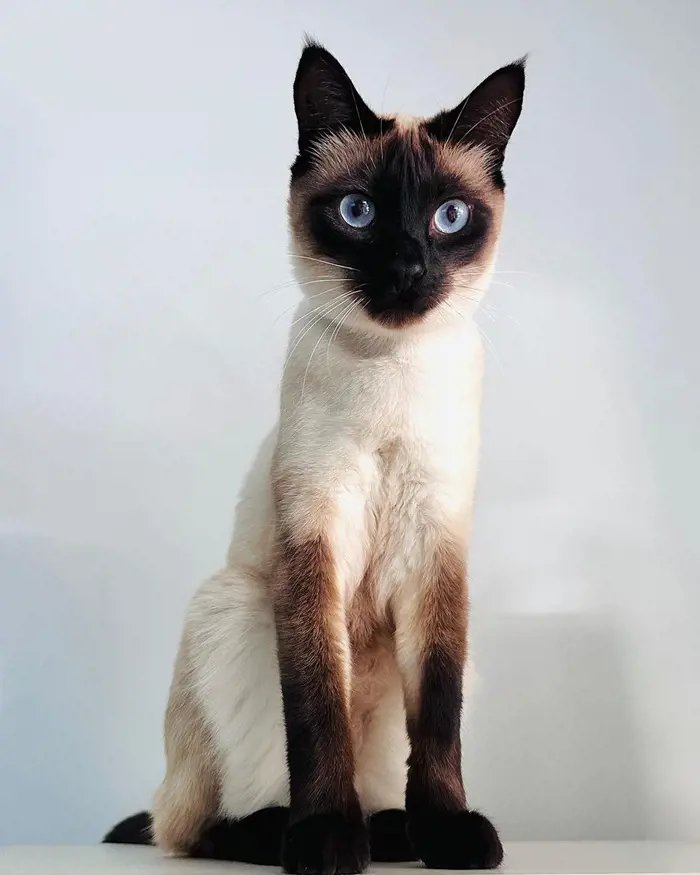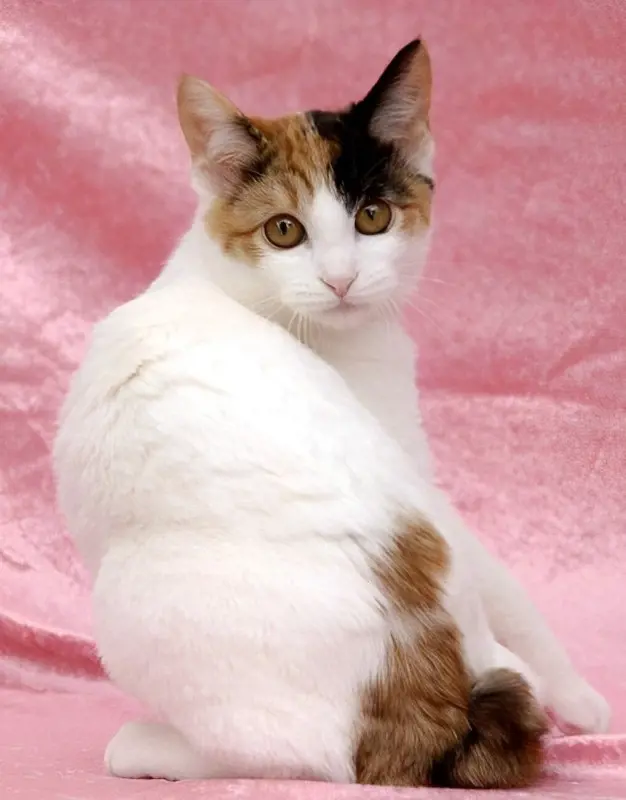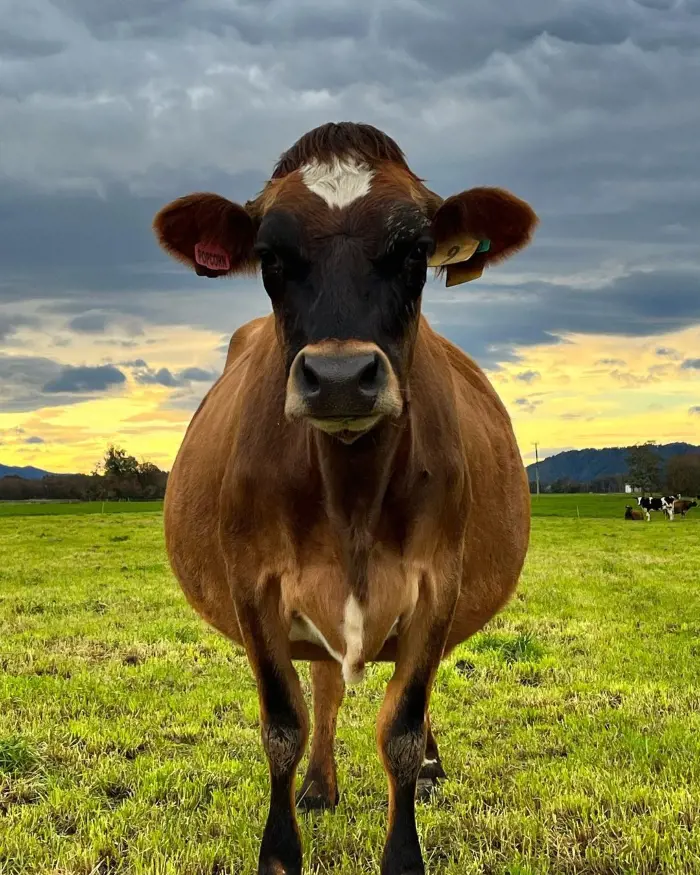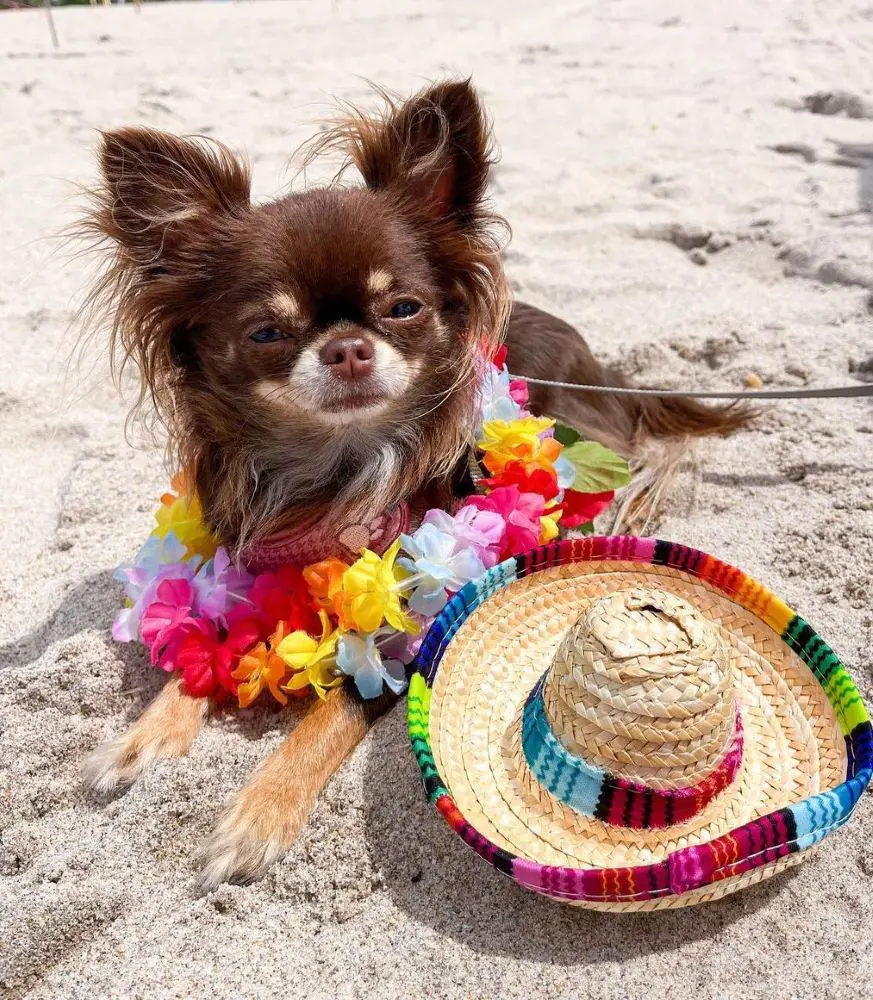15 Toxic Human Foods to Keep Away from Your Cat
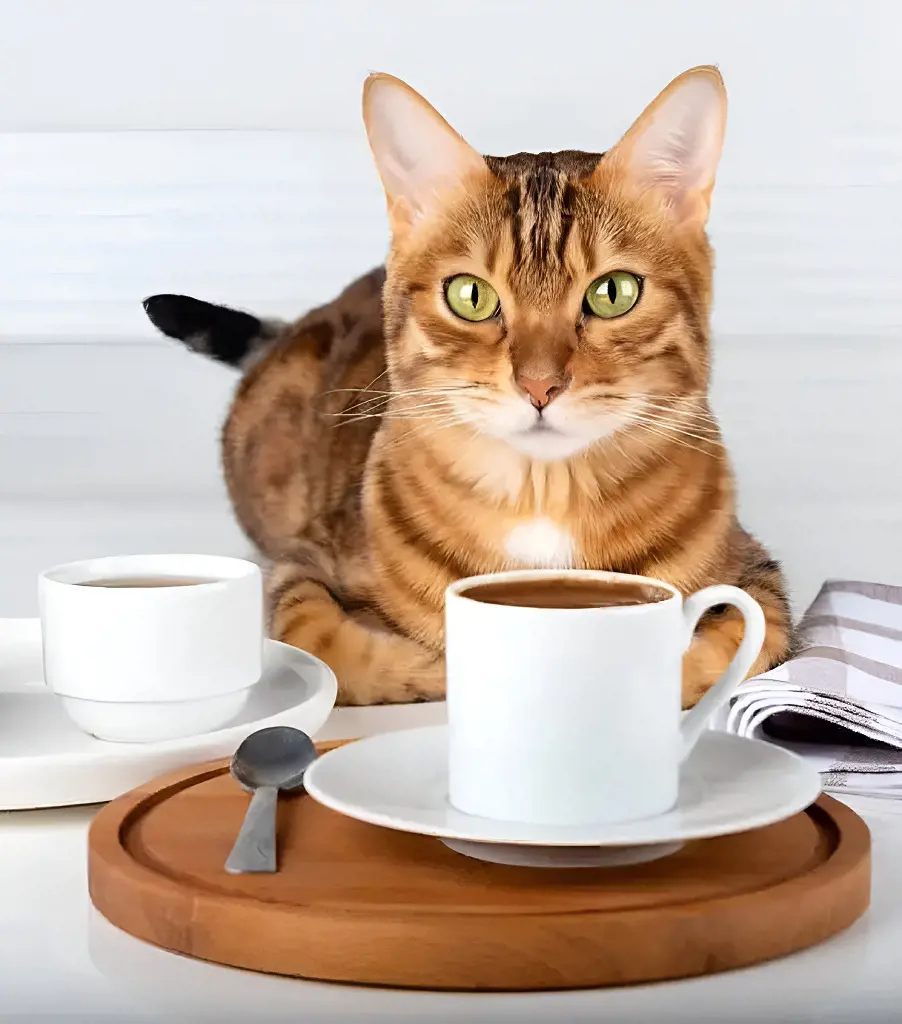
Our beloved feline companions hold a special place in our hearts and homes, sharing not only our living spaces but sometimes even our meals. Although the temptation may arise to share a tasty morsel from our own plates with our curious cats, it is essential to acknowledge and understand that their dietary requirements are significantly distinct from ours.
Cats possess unique metabolic processes that make certain human foods hazardous to their health. So, in this article, we have compiled a list of human foods that are toxic to cats and can cause imbalances in their health.
Is It Safe To Give Cats Human Food?
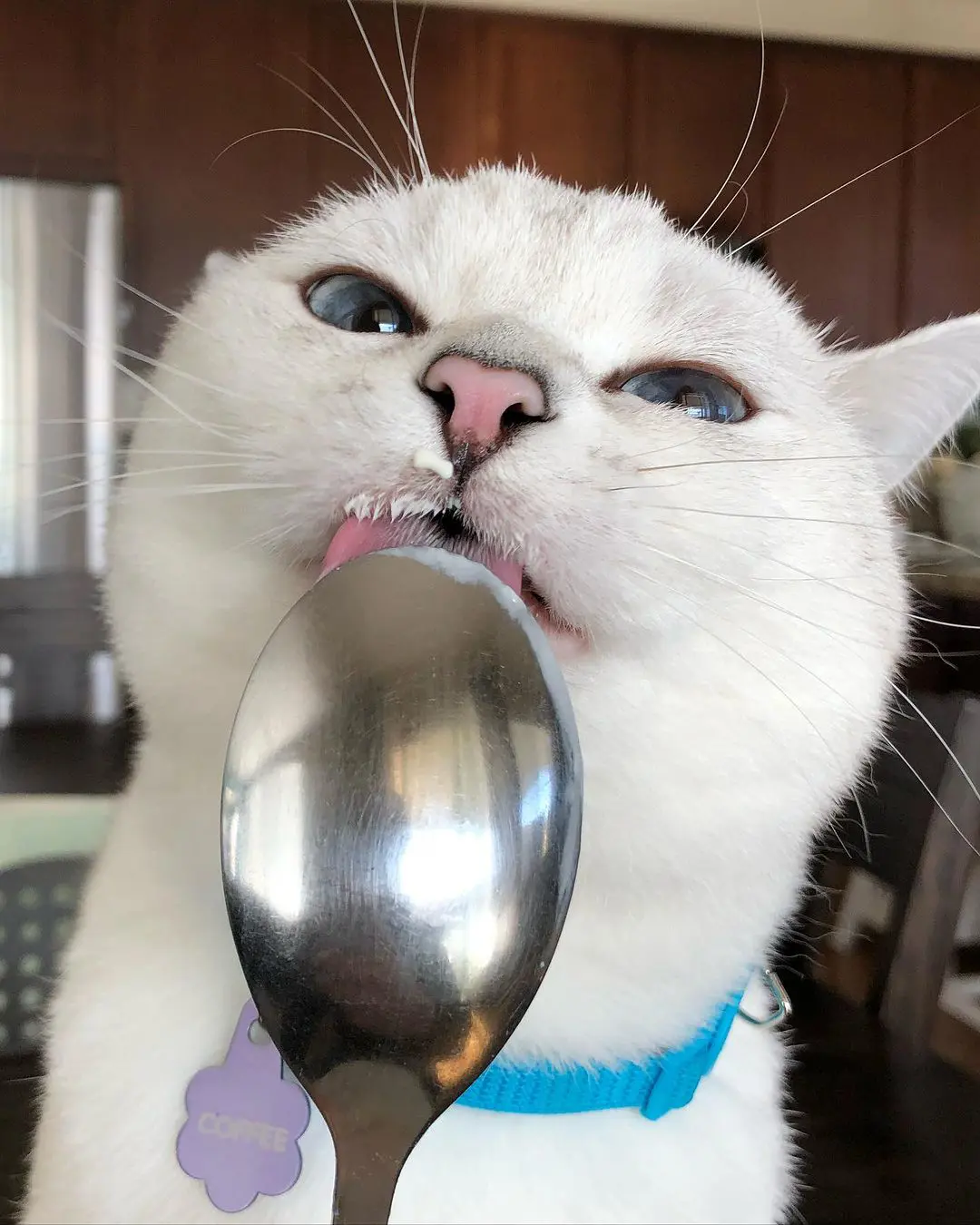
Feeding cats human food can be risky as many foods are toxic to them. It is best to stick to a balanced and appropriate diet formulated for cats to ensure their health and well-being.
To ensure the well-being of your feline friend, it's crucial to select cat-safe foods and seek guidance from a veterinarian before incorporating any new items into their diet.
Cats have unique nutritional requirements, so it's best to prioritize high-quality cat food as the mainstay of their diet.
Which Human Foods Are Safe For Cats To Eat?
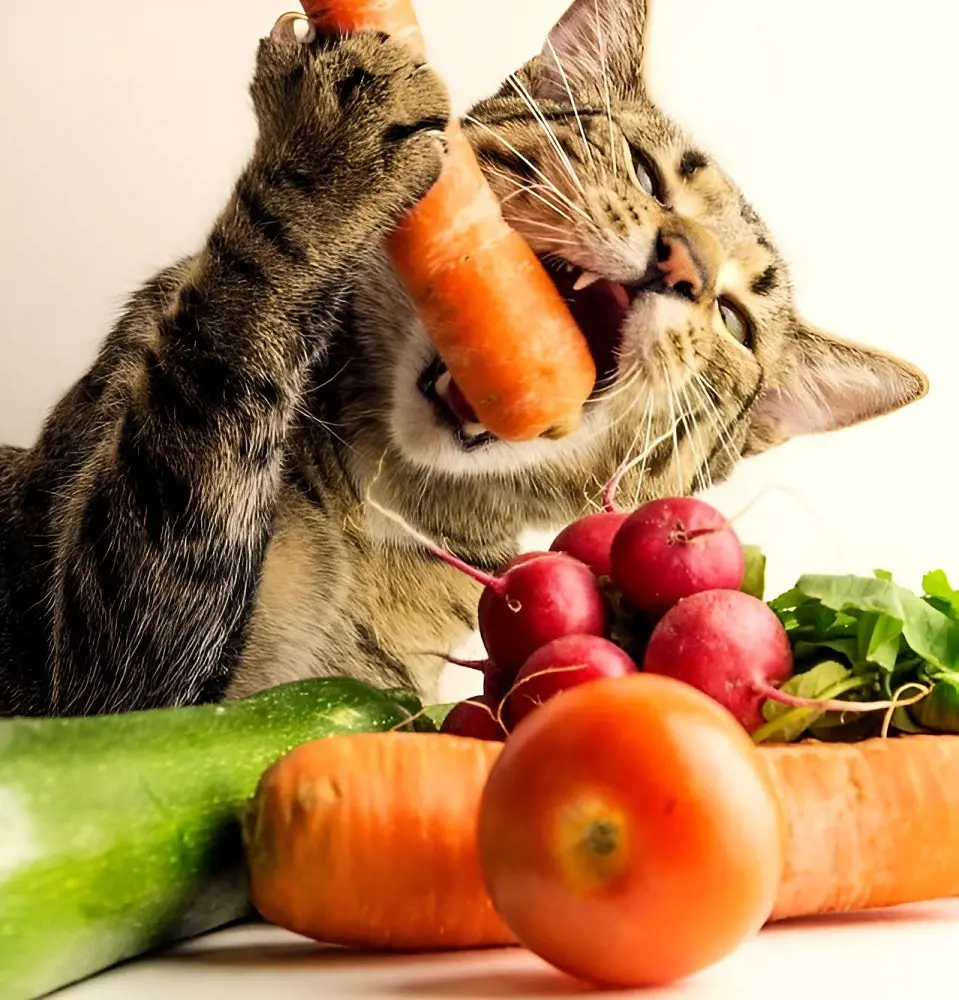
When it comes to sharing human foods with your feline friend it is essential to exercise caution and prioritize their well-being. Some human foods can be given to cats in small amounts occasionally.
While considering safe human foods for cats, it is important to focus on protein-rich choices that align with their natural carnivorous diet. Some of the food that is safe include:
- Cooked Meat
- Plain cooked eggs
- Cheese
- Vegetables (carrots, broccoli, cucumber, etc)
- Oatmeal
- Spinach
- Pumpkin
- Apples
- Peas and many more.
Which Human Foods Can Be Toxic To Cats?
While humans and cats both require water and protein in their diets, their dietary needs differ in other aspects. It is vital to understand how the ingredients could impact their well-being.
Cats have unique nutritional needs, and certain human foods can be downright dangerous, leading to digestive woes, deficiencies, anemia, and even life-threatening situations.
So, here are the 15 foods that are unsafe for your cats.
1. Onions And Garlic
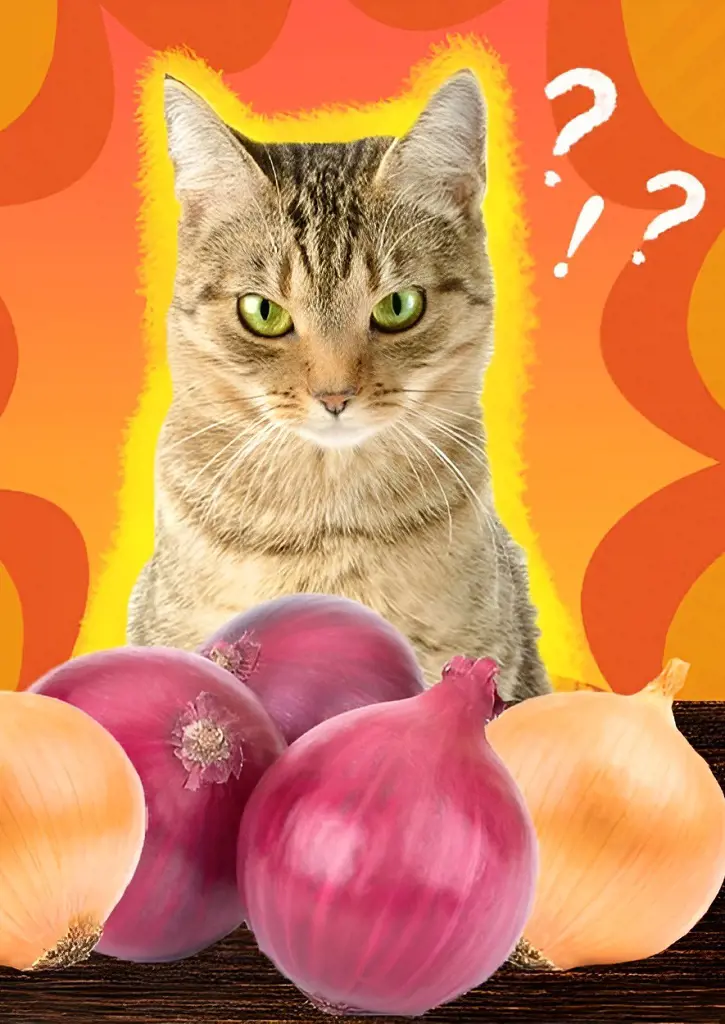
Onions and Garlic are considered toxic foods for cats as they contain compounds called thiosulfates. This can cause oxidative damage to cat red blood cells which result in a decreased ability to transport oxygen throughout the body.
Symptoms of onion and garlic toxicity in cats may include diarrhea, vomiting, rapid breathing, pale gums, jaundice, and many more.
2. Green Tomatoes
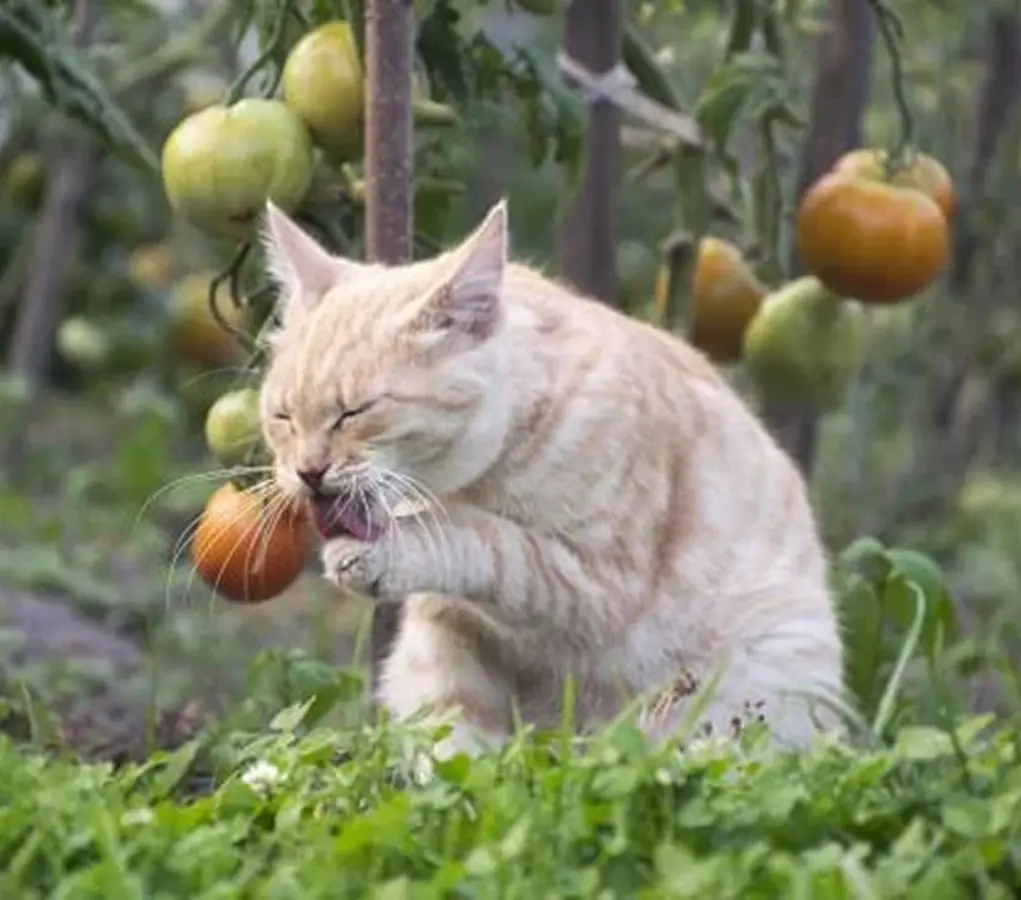
Green tomatoes along with other parts of the tomato plant such as the leaves and stems contain a toxic substance called solanine. Solanine is a glycoalkaloid that can be harmful to cats if ingested in an incorrect proportion.
It can lead to adverse effects in cats such as lethargy, cardiovascular effects, neurological symptoms, and gastrointestinal distress.
3. Chocolate

Theobromine and caffeine in chocolate can have stimulant effects on cats' central nervous and cardiovascular systems, causing harm. Cats are particularly sensitive to the effects of these compounds.
These compounds can cause various negative reactions in cats which include gastrointestinal upset, hyperactivity, neurological effects, abnormal heart rhythm, seizures, and even death.
4 . Alcohol
Alcohol is considered toxic for cats because their bodies cannot metabolize it effectively, leading to serious health risks. Offering beer to pets may seem amusing, but it is considered abusive and jeopardizes their well-being.
If your cats consume alcohol then you might see symptoms like respiratory depression, hypoglycemia, gastrointestinal distress, organ damage, vomiting, diarrhea, coma, and death.
5. Dairy Products
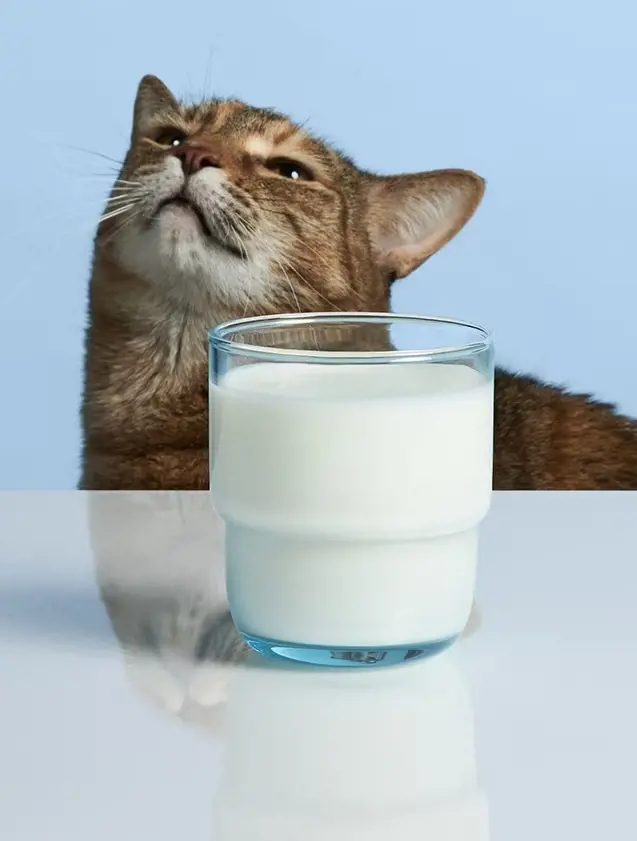
While cats may enjoy drinking milk, it's important to note that dairy products can be harmful to them. This is because many cats are lactose intolerant and cannot digest lactose properly.
Lactose intolerance occurs when a cat’s body lacks sufficient amounts of the enzyme lactose, which is needed to properly digest lactose, the natural sugar found in milk and dairy products.
As a result, when lactose-intolerant cats consume dairy products they can experience digestive upset and discomfort. It can lead to symptoms such as excessive gas, vomiting, and stomach issues.
6. Avocado
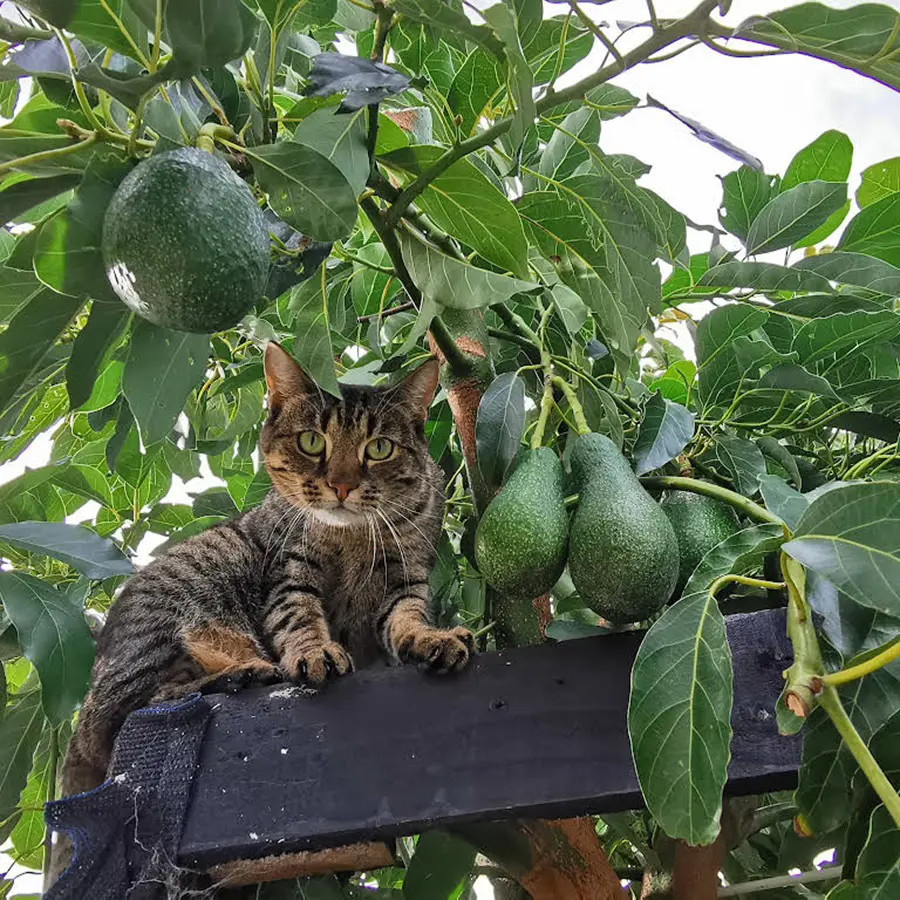
It's important to be cautious when it comes to giving cats avocados. Persin, a substance found in avocados, can be harmful to cats and may cause various symptoms if ingested. Additionally, the large seed in the middle of the fruit can pose a choking hazard.
If your cat accidentally ingests avocado, it can result in vomiting, diarrhea, fluid accumulation, and problems with the gastrointestinal due to the fat content.
7. Raw Meats And Bones
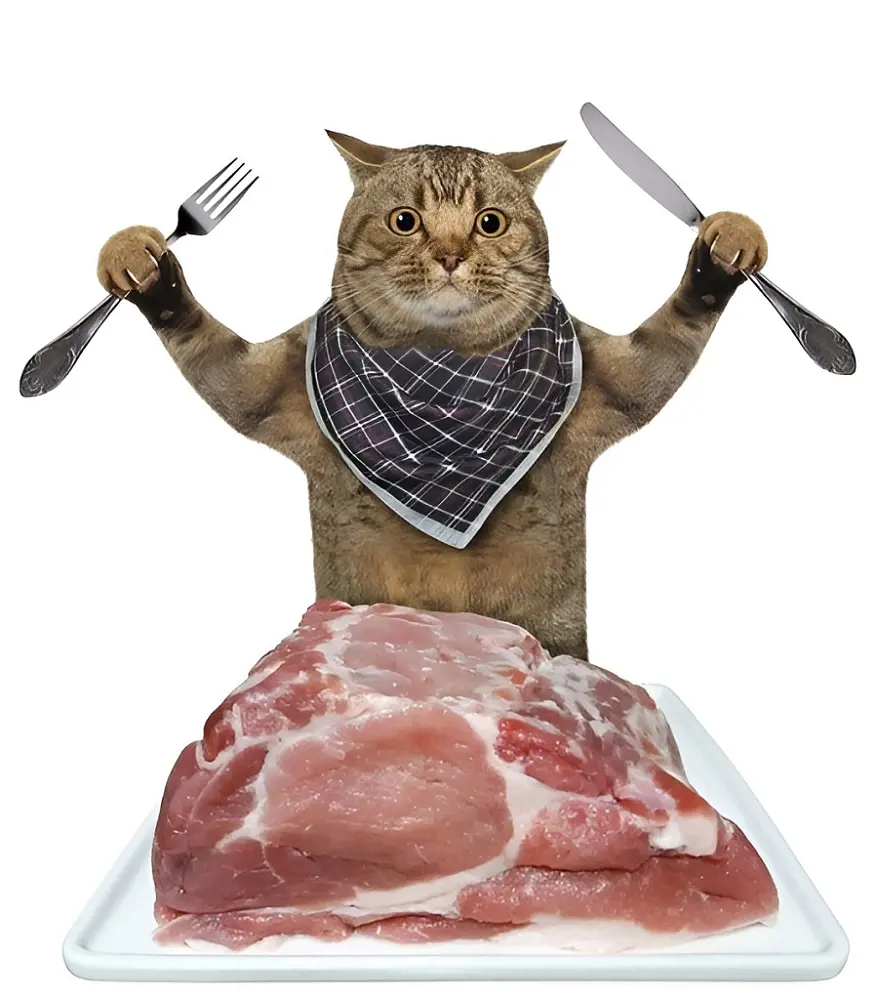
Raw meats carry the risk of bacterial contamination, including pathogens like Salmonella and E.coli which can lead to foodborne illness in cats. Meanwhile, bones can cause blockages or harm to the digestive system.
Offering an exclusive diet of raw meats and bones may result in an unbalanced nutritional intake, lacking essential nutrients vital for a cat’s overall well-being. Particularly, cooked bones can splinter and pose choking hazards, cause mouth or throat injuries, or even lead to blockages in the intestines.
8. Raw Yeast Dough
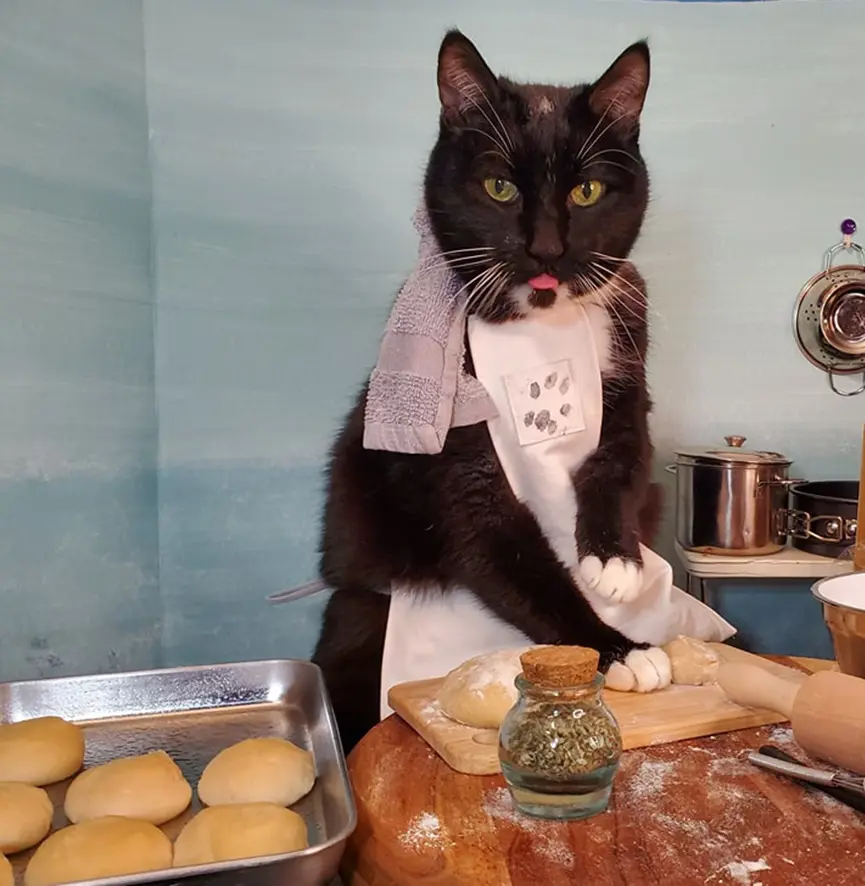
Yeast dough is considered toxic to cats due to the potential risks associated with its indigestion and fermentation process. It may cause several health issues in pets.
The dough will cause severe distention in the stomach, the problem of gastrointestinal, ethanol toxicity, vomiting, diarrhea, breathing problems, and even death.
9. Grapes And Raisins
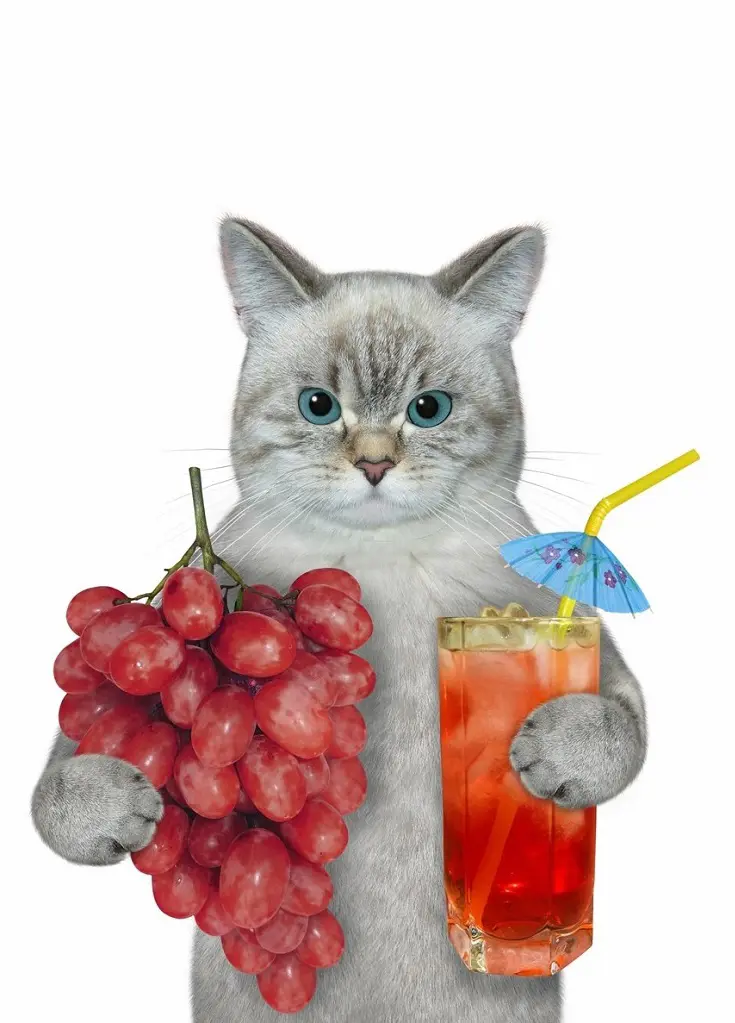
Cats are widely recognized to be at risk when consuming grapes and raisins due to their potential toxicity. Consumption of this can also cause kidney failure.
Even small amounts of grapes or raisins have been known to lead to severe health issues in cats. They can cause a toxic reaction that may lead to symptoms such as vomiting, abdominal pain, reduced appetite, decreased urination, and lethargy.
10. Xylitol (Artificial Sweetener)
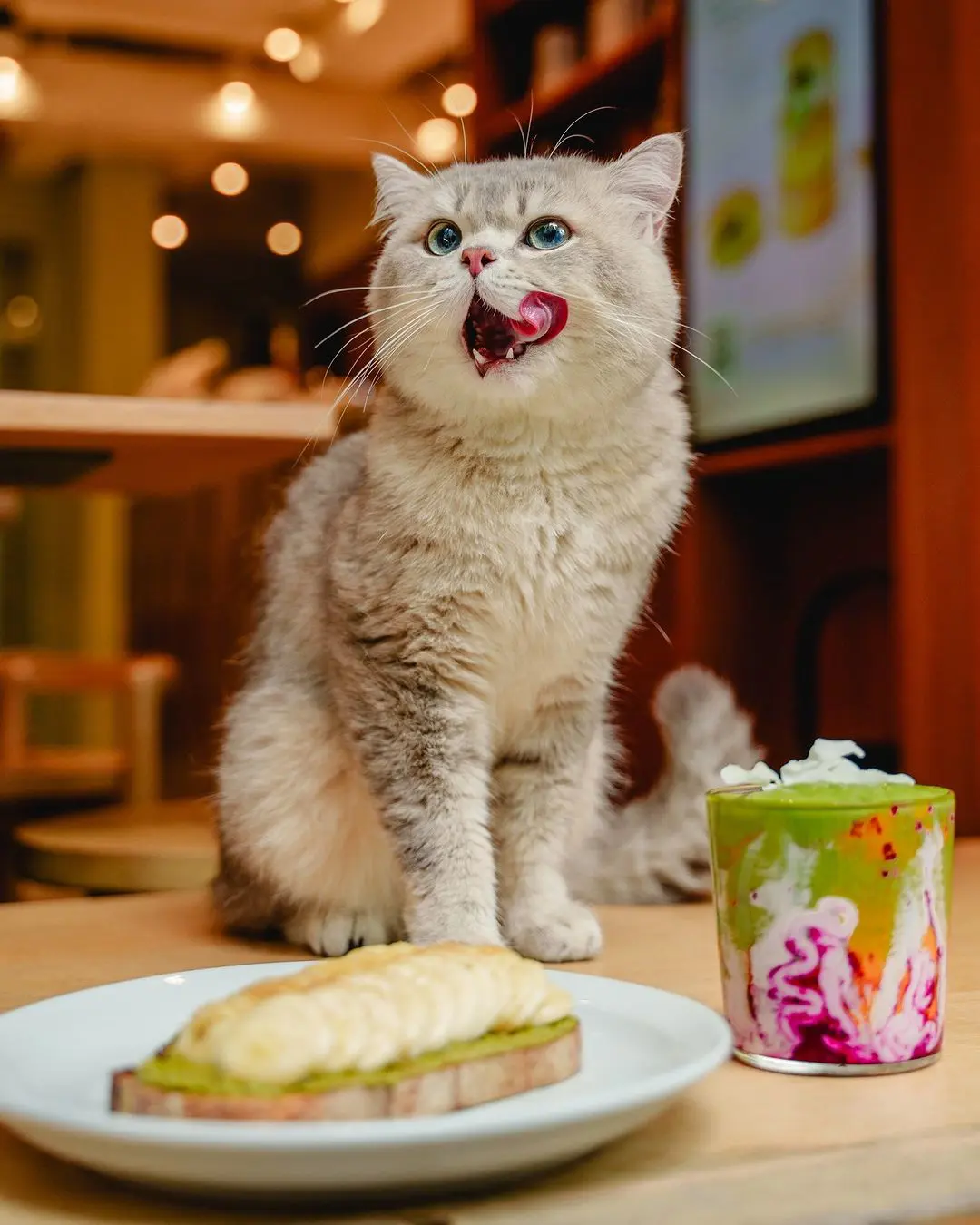
Xylitol is known to be toxic to cats as it can cause a rapid release of insulin in their bodies. It may lead to a dangerous drop in sugar levels.
If cats consume xylitol, it can cause low blood sugar, liver damage, and harmful symptoms like lethargy, vomiting, and seizures.
11. Nuts
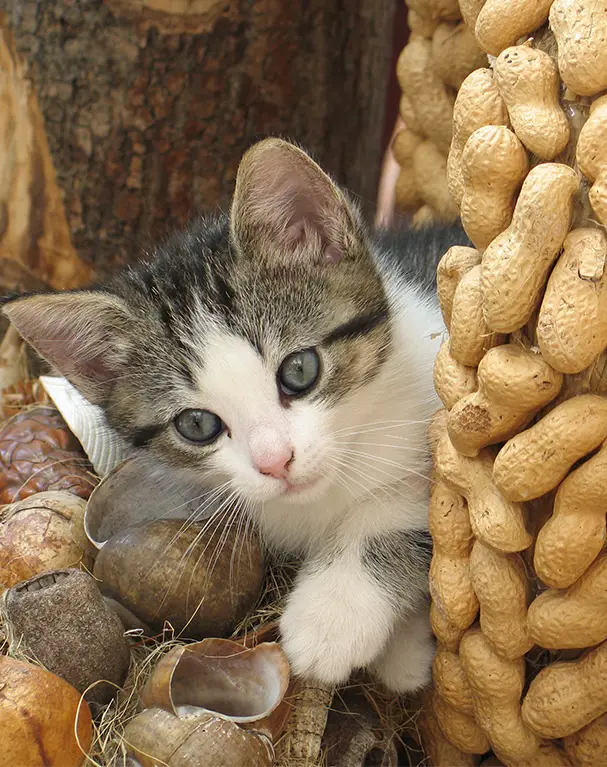
Nuts particularly certain types like macadamia nuts are considered toxic to cats due to their potential to cause adverse health effects when ingested. Even small amounts of macadamia nuts can lead to negative reactions.
Ingestion of macadamia nuts may cause muscle weakness and tremors, digestive upset, choking hazards, and potential allergic reactions.
12. Caffeine
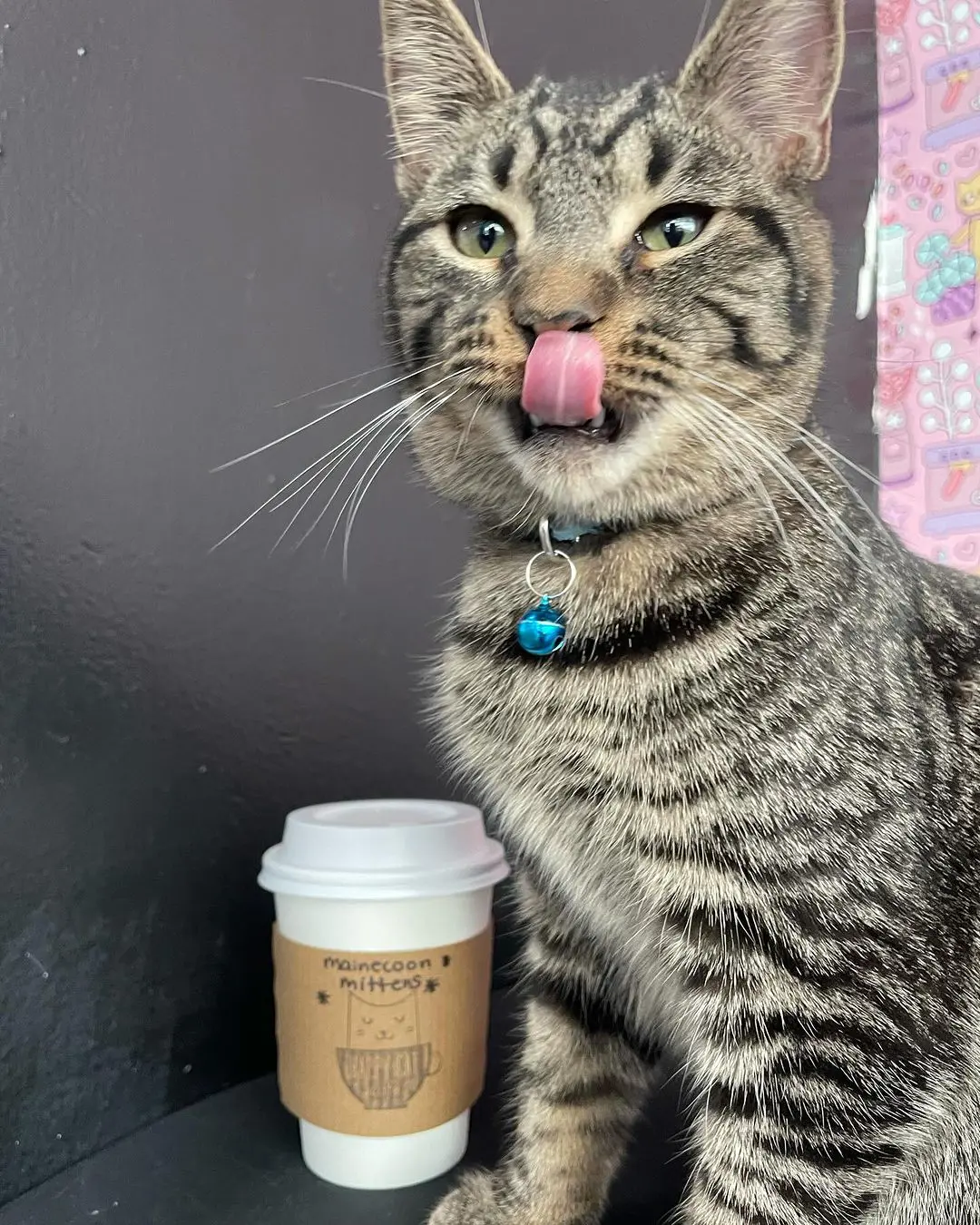
Caffeine is considered toxic to cats due to its stimulant effects on the central nervous system and cardiovascular systems. Cats are particularly sensitive to the effects of caffeine, and even a small amount can lead to harmful consequences.
When cats consume caffeine it can result in central nervous system stimulation, rapid heart rate, elevated blood pressure, vomiting and diarrhea, tremors and seizures, and hyperthermia.
13. Raw Eggs
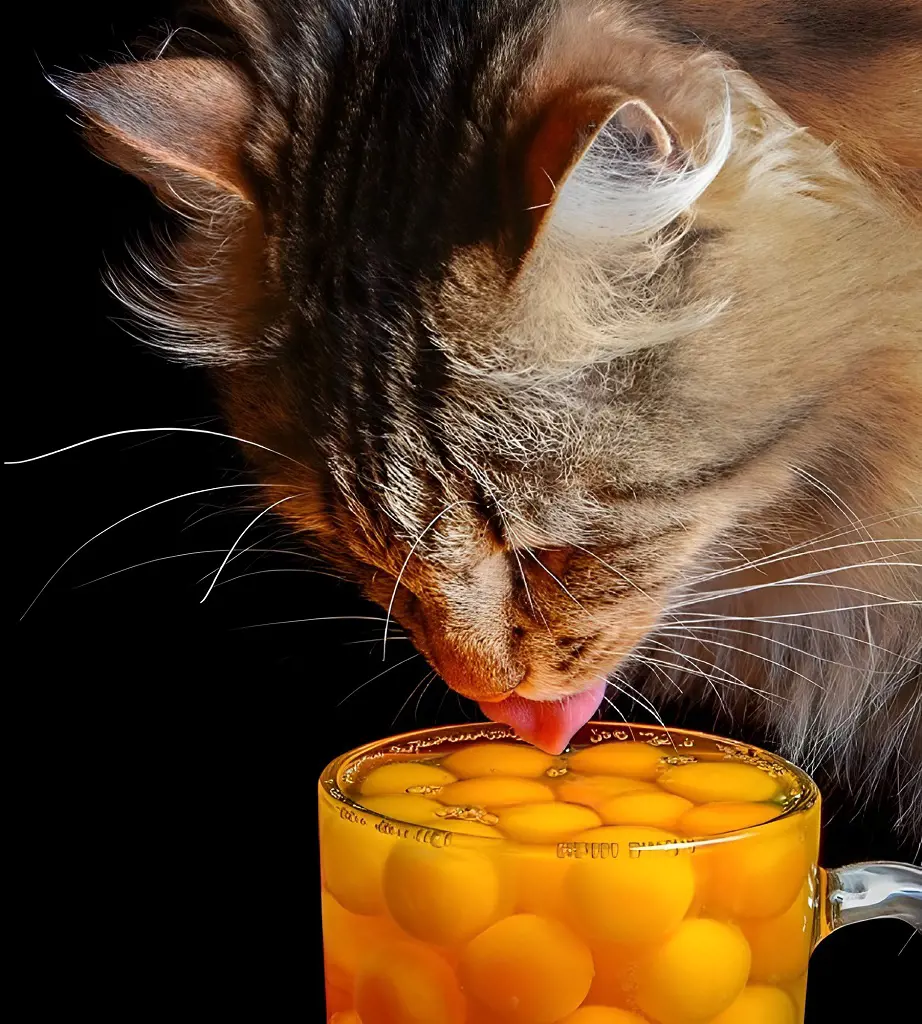
Raw eggs may be contaminated with Salmonella bacteria which can lead to foodborne illness in cats and pose a risk to their health. It contains avidin, which prevents cats from absorbing biotin, an essential vitamin for their skin and fur health.
Signs of infection include an unbalanced diet, vomiting, fever, bacterial contamination, skin problems and diarrhea.
14. Uncooked Potatoes
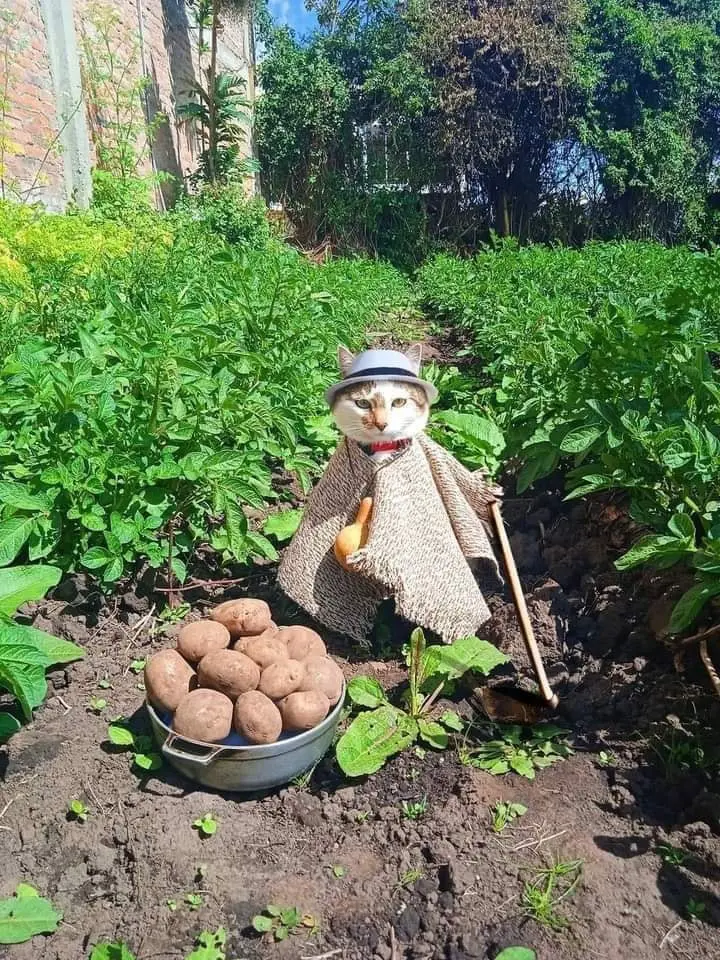
Uncooked potatoes are regarded as harmful to cats due to the presence of toxic alkaloids that can cause gastrointestinal irritation and neurological signs.
When cats consume uncooked potatoes or parts of the potato plant it can lead to adverse effects such as lethargy and weakness, cardiovascular effects, and neurological symptoms.
15. Canned Tuna
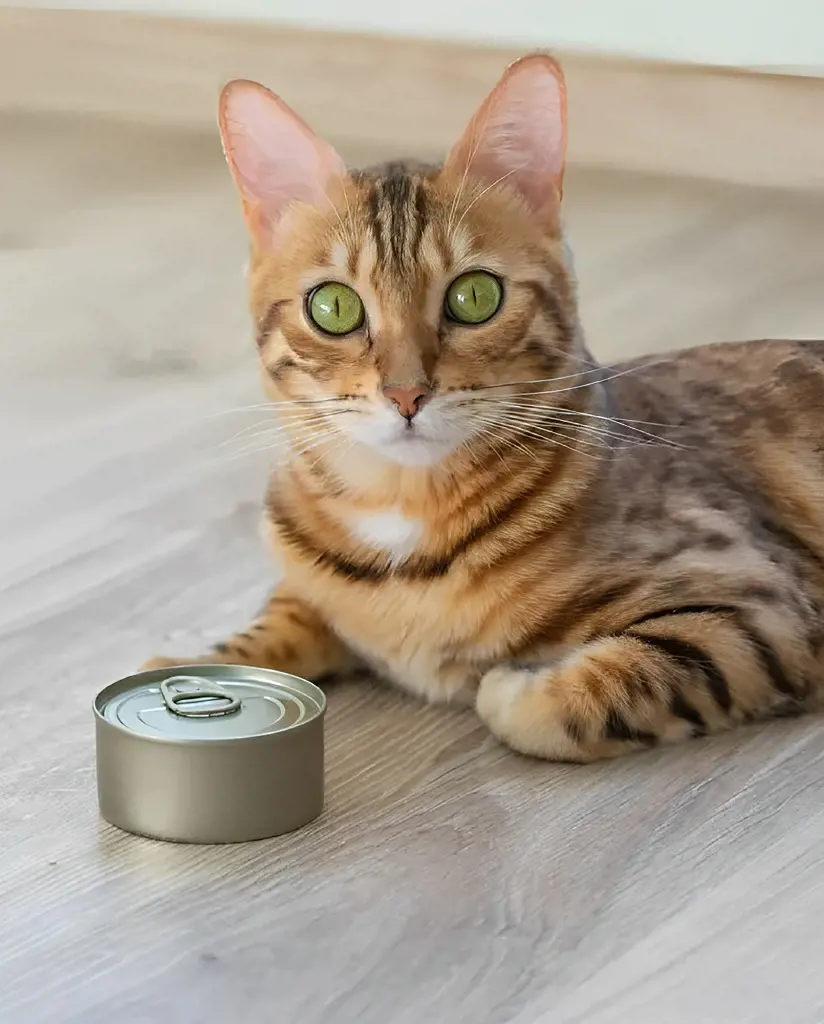
Continuous consumption of canned tuna can result in malnutrition in cats as it doesn’t contain all of the necessary nutrients. If fed beyond moderation without precautions, ailments may be observed in cats.
Some of the health issues that arise due to overconsumption of canned tuna are thiamine deficiency, an imbalanced diet, leading neurological symptoms including mental dullness, blindness, head tilt, abnormal eye movement, and seizures.
What Steps Should You Take If Your Cat Ingests Something Toxic?
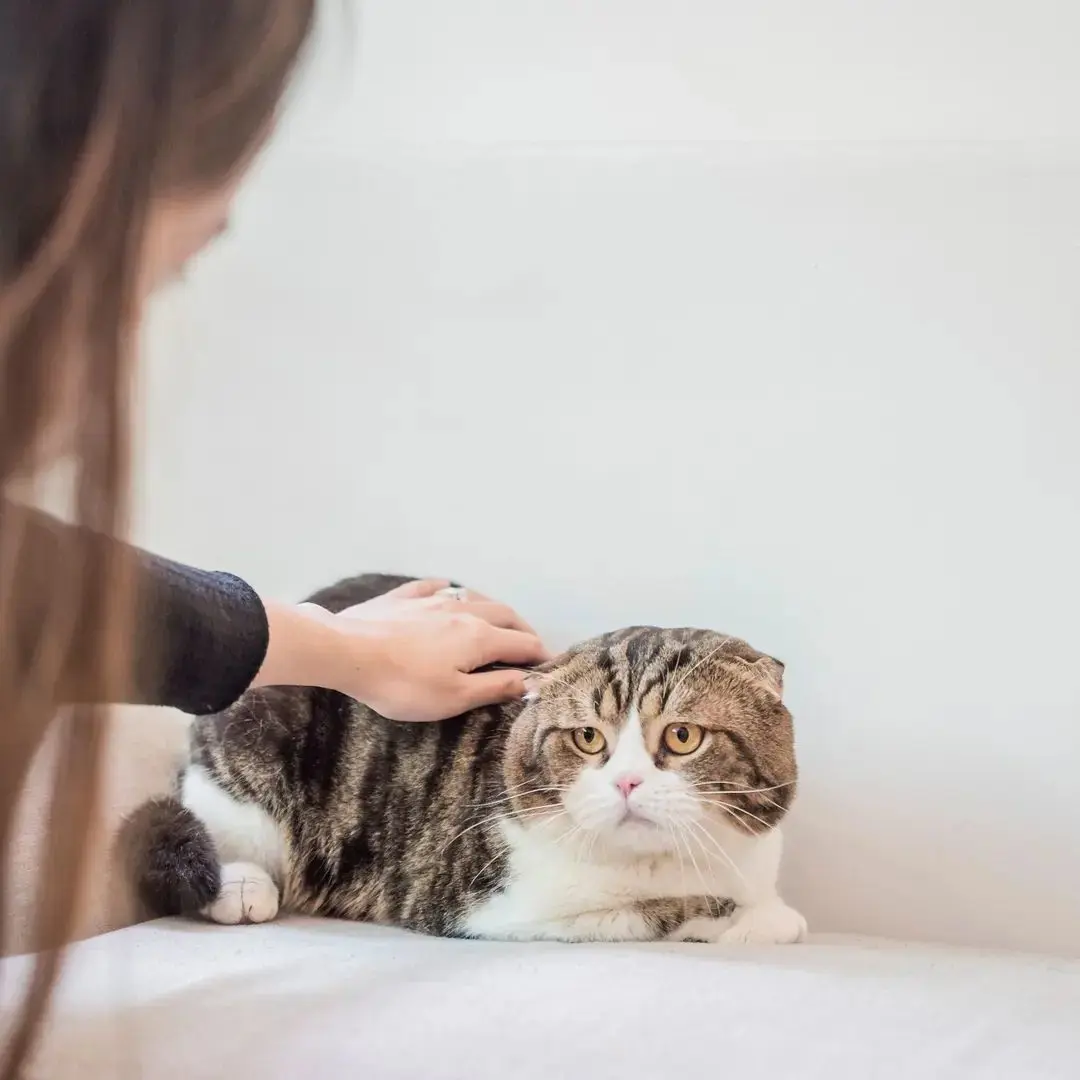
If you suspect that your cat has ingested something toxic, it is important to take immediate action to ensure their safety. You can seek help from a professional and ensure their safety before the situation gets out of hand.
Here are the steps you should follow:
- Stay calm and composed, unnecessary panic can only make the situation worse
- Identify what the cat has ingested and the quantity
- Contact your Veterinarian
- Do not induce vomiting without vet guidance
- Provide first aid as guided by the vet
- Monitor your cat's condition closely
- If there is no improvement, visit your veterinarian promptly
- Take prevention measures for the future.

